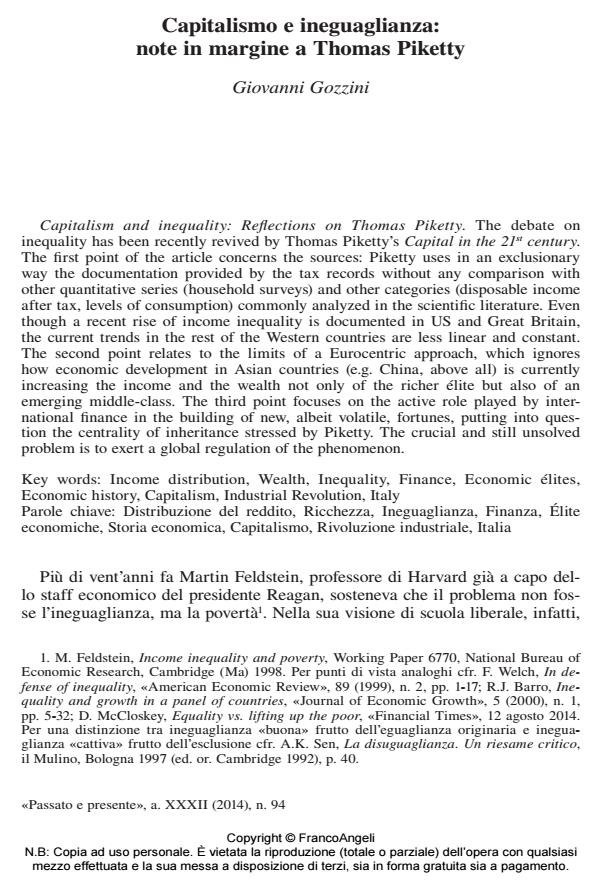Capitalism and inequality: Reflections on Thomas Piketty
Journal title PASSATO E PRESENTE
Author/s Giovanni Gozzini
Publishing Year 2015 Issue 2015/94
Language Italian Pages 12 P. 115-126 File size 120 KB
DOI 10.3280/PASS2015-094007
DOI is like a bar code for intellectual property: to have more infomation
click here
Below, you can see the article first page
If you want to buy this article in PDF format, you can do it, following the instructions to buy download credits

FrancoAngeli is member of Publishers International Linking Association, Inc (PILA), a not-for-profit association which run the CrossRef service enabling links to and from online scholarly content.
The debate on inequality has been recently revived by Thomas Piketty’s Capital in the 21st century. The first point of the article concerns the sources: Piketty uses in an exclusionary way the documentation provided by the tax records without any comparison with other quantitative series (household surveys) and other categories (disposable income after tax, levels of consumption) commonly analyzed in the scientific literature. Even though a recent rise of income inequality is documented in US and Great Britain, the current trends in the rest of the Western countries are less linear and constant. The second point relates to the limits of a Eurocentric approach, which ignores how economic development in Asian countries (e.g. China, above all) is currently increasing the income and the wealth not only of the richer élite but also of an emerging middle-class. The third point focuses on the active role played by international finance in the building of new, albeit volatile, fortunes, putting into question the centrality of inheritance stressed by Piketty. The crucial and still unsolved problem is to exert a global regulation of the phenomenon.
Keywords: Income distribution, Wealth, Inequality, Finance, Economic élites, Economic history, Capitalism, Industrial Revolution, Italy
Giovanni Gozzini, Capitalismo e ineguaglianza: note in margine a Thomas Piketty in "PASSATO E PRESENTE" 94/2015, pp 115-126, DOI: 10.3280/PASS2015-094007